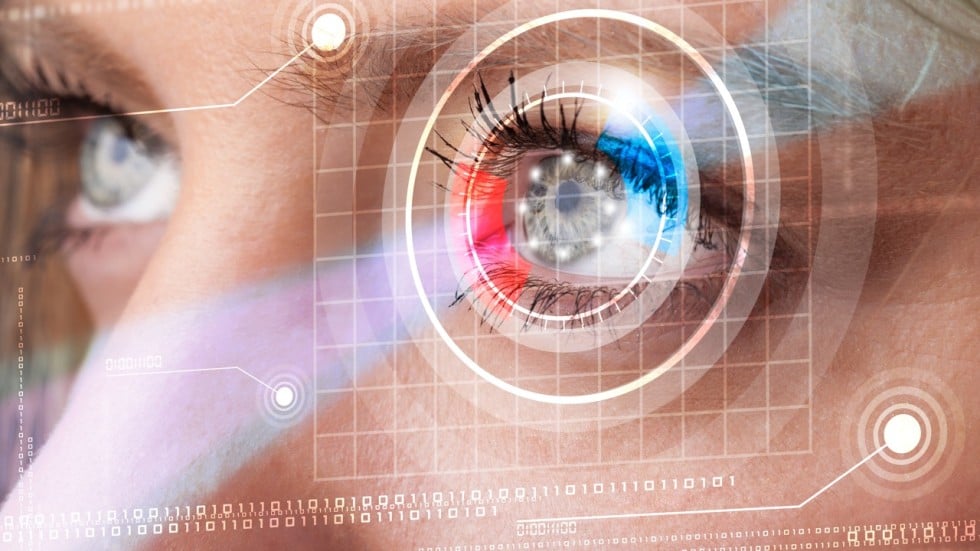AI algorithm beating human doctors, tested by Google’s DeepMind
Source: Pearse Keane
 Technology for scanning eyes is so advanced it has outstripped the ability of doctors to interpret the images it produces – meaning more patients than necessary are being referred to eye specialists, potentially delaying treatment for those at risk of going blind.
Technology for scanning eyes is so advanced it has outstripped the ability of doctors to interpret the images it produces – meaning more patients than necessary are being referred to eye specialists, potentially delaying treatment for those at risk of going blind.
Artificial intelligence may come to the rescue. Deepmind, the AI company owned by Google’s parent company, Alphabet, trained artificial intelligence software to detect signs of disease better than human doctors, according to a study published on Monday in the scientific journal Nature Medicine.
DeepMind and its partners in the research, London’s Moorfields Eye Hospital and the University College London Institute of Ophthalmology, plan to develop a medical product that will help doctors detect more than 50 sight-threatening conditions from a common type of eye scan.
Clinical trials of the technology are scheduled to begin in 2019.
If those trials are successful, DeepMind said it would seek to create a regulator-approved product that Moorfields could roll out across the UK. It said the product would be free for an initial five-year period.
That would mark the first use in a health care product of a DeepMind AI algorithm.
The DeepMind-Moorfields research looked at a type of eye scan called optical coherence tomography (OCT) that can be used to diagnose age-related macular degeneration (AMD), now the leading cause of blindness in the developed world, as well as other retinal disorders linked to conditions such as diabetes. (In Hong Kong, AMD is the leading cause of blindness and accounts for 23 per cent of all people who have lost their sight, according to the Hong Kong Society for the Blind.) However, Keane said, the use of OCT scanners has outstripped the training of experts who can correctly interpret their imagery.
As a result, almost any abnormality picked up on OCT scan leads to a referral to an ophthalmologist for further review. Between 2007 and 2017, ophthalmology referrals in the UK increased by 37 per cent. This has led to waiting times that make treating those who actually need quick intervention to prevent blindness difficult.
To benchmark the system, DeepMind tested the software on 1,000 scans not used to train the AI, and compared its performance to four senior ophthalmologists and four optometrists who had also been specifically trained to interpret OCT scans.
The researchers found their AI could make the correct referral decision for over 50 eye diseases with 94 per cent accuracy – better than most of the humans. Critically, the software had zero false negatives – cases where it missed indicators of disease – and only two false positives, where the system recommended urgent assessment in cases where doctors had recommended the patient simply monitor their symptoms. This was better than any of the human experts.
DeepMind’s software used two separate neural networks, a kind of machine learning loosely based on how the human brain works. One neural network labels features in OCT images associated with eye diseases, while the other diagnoses eye conditions based on these features. Splitting the task means that – unlike an individual network that makes diagnoses directly from medical imagery – DeepMind’s AI isn’t a black box whose decision-making rationale is completely opaque to human doctors, Keane said.
Alphabet has several initiatives aimed at using artificial intelligence to improve health care. Earlier this year, Verily, an Alphabet-owned life sciences company, teamed up with AI experts from Google to develop an algorithm that could spot a range of cardiovascular issues from a different kind of retinal image.
DeepMind itself has an entire division devoted to health care, and has research projects with the UK’s National Health Service and with the US Department of Veterans Affairs, among others.
DeepMind’s work with the UK’s National Health Service has been controversial. Last year, the UK data privacy watchdog said a different NHS trust, the Royal Free Hospital, had illegally provided 1.6 million patient records to DeepMind to help it develop a mobile app that would alert doctors if patients were at risk of developing acute kidney injury.
In the eye scan study, DeepMind and its NHS partners took steps to avoid similar issues. Pearse Keane, the senior doctor who lead the Moorfields team working on the project, said the hospital “did everything we could” to anonymise the 16,000 eye scans it used both to train and test the algorithms DeepMind developed.
This process was approved and audited by the hospital’s information governance department, and DeepMind was barred from trying to re-identify patients whose scans were being used. The NHS also stressed that Moorfields owns the data used to develop the software, and can use it freely in other research.
| }
|